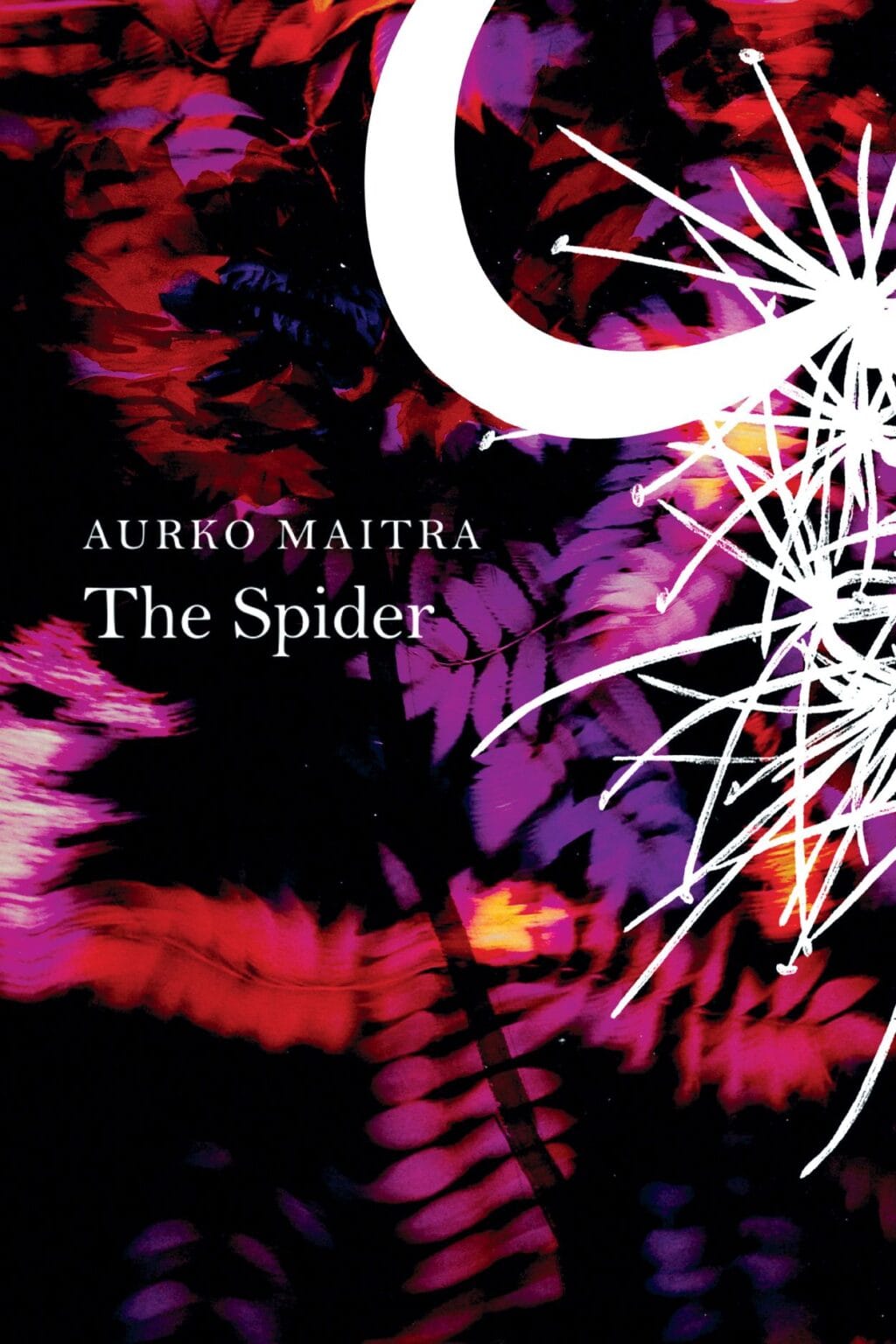Set in West Bengal, Aurko Maitra’s debut novella The Spider grapples with the human predisposition to violence, to unmediated crimes of rape and murder. Maitra has spent part of his career as a journalist in this state of east India known for endless political violence, which, like clockwork, occurs as local elections approach and politicians with deep pockets hire gangs of mercenaries to instigate riots and raid opposing Party strongholds. He has interviewed both victims and perpetrators in the area, and from these interviews, The Spider was born.
The Spider follows a mercenary clan in present day West Bengal as they stage raids and carry out assassinations, sometimes on the behalf of politicians, other times on their own whims. The 13-year-old protagonist of The Spider is Rahim, the eldest son of the clan’s leader, the infamous Qadir. He’s set to inherit his father’s role as “the spider,” and will soon lead the mercenaries himself, as his father grows too old and injured for battle. Rahim doesn’t need to think all that deeply about the life he lives; he has no moral opposition to the killing, he’s been handling a gun since he was a child, and according to his father at least, the men he’s taking down are all “rapists and paedophiles”.
By accident, Rahim discovers that the “rapists and paedophiles” he detests are not confined to his clan’s political enemies. He finds out that his father raped a young girl during a previous raid—suddenly, Qadir appears as evil as the men Rahim’s tasked to kill. Rahim is set to undergo a similar change—on their next raid, Rahim, like his father, sexually assaults a young girl before shooting her point blank in the head. He has every opportunity to back away from this young girl—after all, his friend is begging for a turn with her—and it seems Rahim himself is having second thoughts:
Rahim forced a smile, then turned to the girl. He didn’t feel anything as he crawled on top of her thrashing body. He was still cold to her. To keep her still he grabbed her by the hair and punched her, hitting her again and again, one hand reaching down his shorts as he tried to feel something.
Baltu stood there, waiting. It was just the 3 of them. Kids, really. Their bodies sleek with blood.
Still, he proceeds with the violence, and spends the aftermath of the raid trying to rationalize his actions, his own descent into evil, but he can’t.
The plot of The Spider is straightforward; the real ingenuity of the novella lies in Maitra’s stylistic choices, and the development of his writing style. Maitra’s prose actually mirrors Rahim’s descent—at the start, as Rahim and his pre-teen friends glamorize their lives and worship Qadir, Maitra’s prose is flowery, his descriptions long and detailed. Here, Rahim shoots like a Bollywood hero, and stories of Qadir’s exploits are admirable and unbelievable. Among copious natural metaphors, Maitra shows us the mercenaries as sympathetic figures:
[Qadir] taught them this was not decay, but regeneration. This was the way life emerged, feeding on what came before it. Scarring the leaves and baring them of colour…
… Qadir walked among ancient cities of canopies and blossoming vines. He showed them the Arjuns and Pigeonwoods, the sacred, primordial groves that had once been worshipped as shrines. Bulbul nests lay in the crook of the Date palms. Mosquitos seethed in the core of a ripened jackfruit, feeding, their black bodies smeared with its reeking yellow pulp.
During the raid, however, as Rahim commits unjustifiable acts, Maitra’s language becomes flat, stripped of its previous flourish—he now retells the events as they occur, his beautiful descriptions are abruptly few and far between. The effect on the reader is startling; it is as if the storytelling and narrativization of violence perpetuate the horrors committed by Rahim, by Qadir, by the entire mercenary clan; after all, Rahim’s corruption is a result of his desire to be like his father, to have the same stories told of his own exploits.
The violence in The Spider is unexplained, arising out of nothing—not human nature, not as something to which humans are fated as a result of God’s will—just existing as a fact of daily life. Violence, Maitra implies, is as quotidian as farming.
Carefully-written, Maitra’s novel unveils the same horrors to the reader and Rahim, horrors which were once presented as—and thought to be—beautiful. In this wrenching coming of age story, Rahim never once regrets committing his violent acts; he just tries to look for an explanation, and when he can’t find one, accepts himself as evil, a classification that the reader is forced to grapple with far more than Rahim. The Spider is a joy—and horror—to read. Aurko Maitra has made an unflinching and confident debut.

